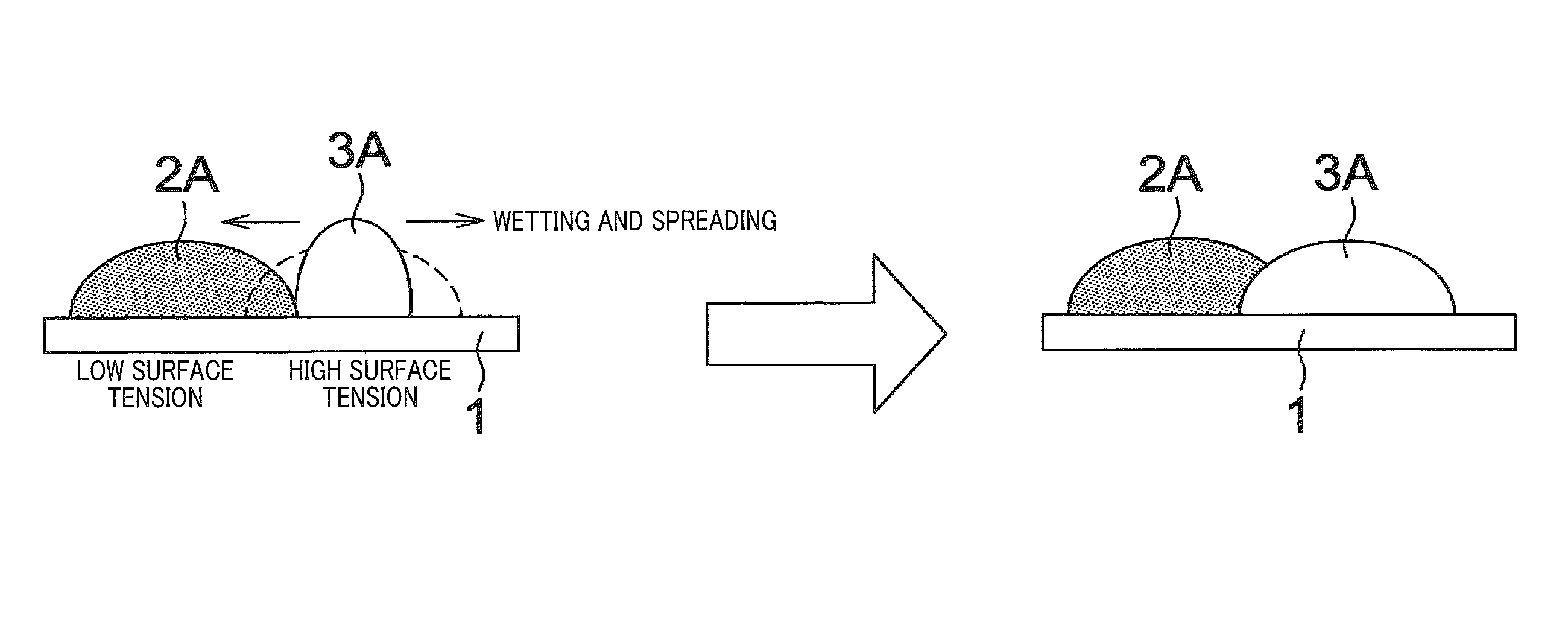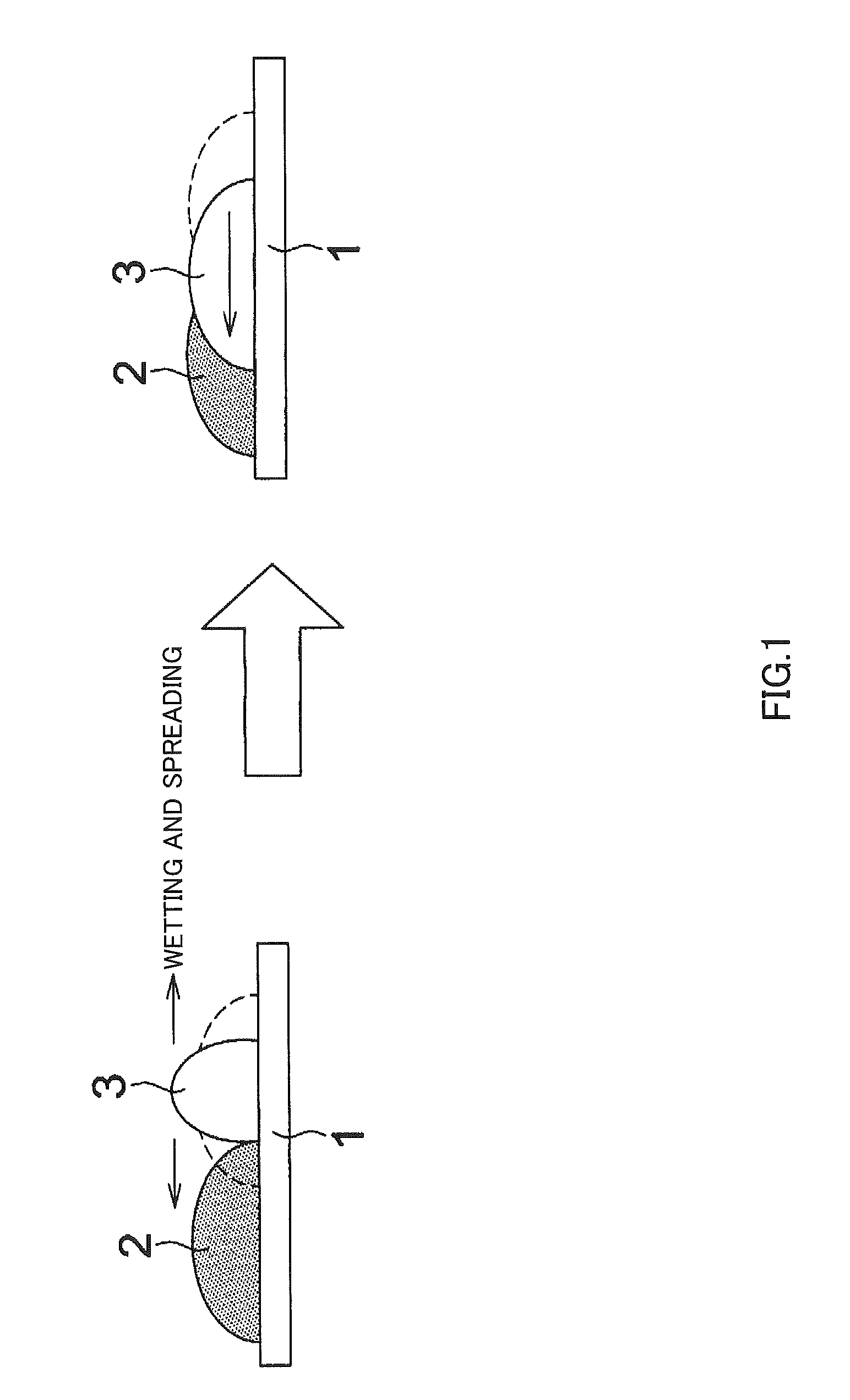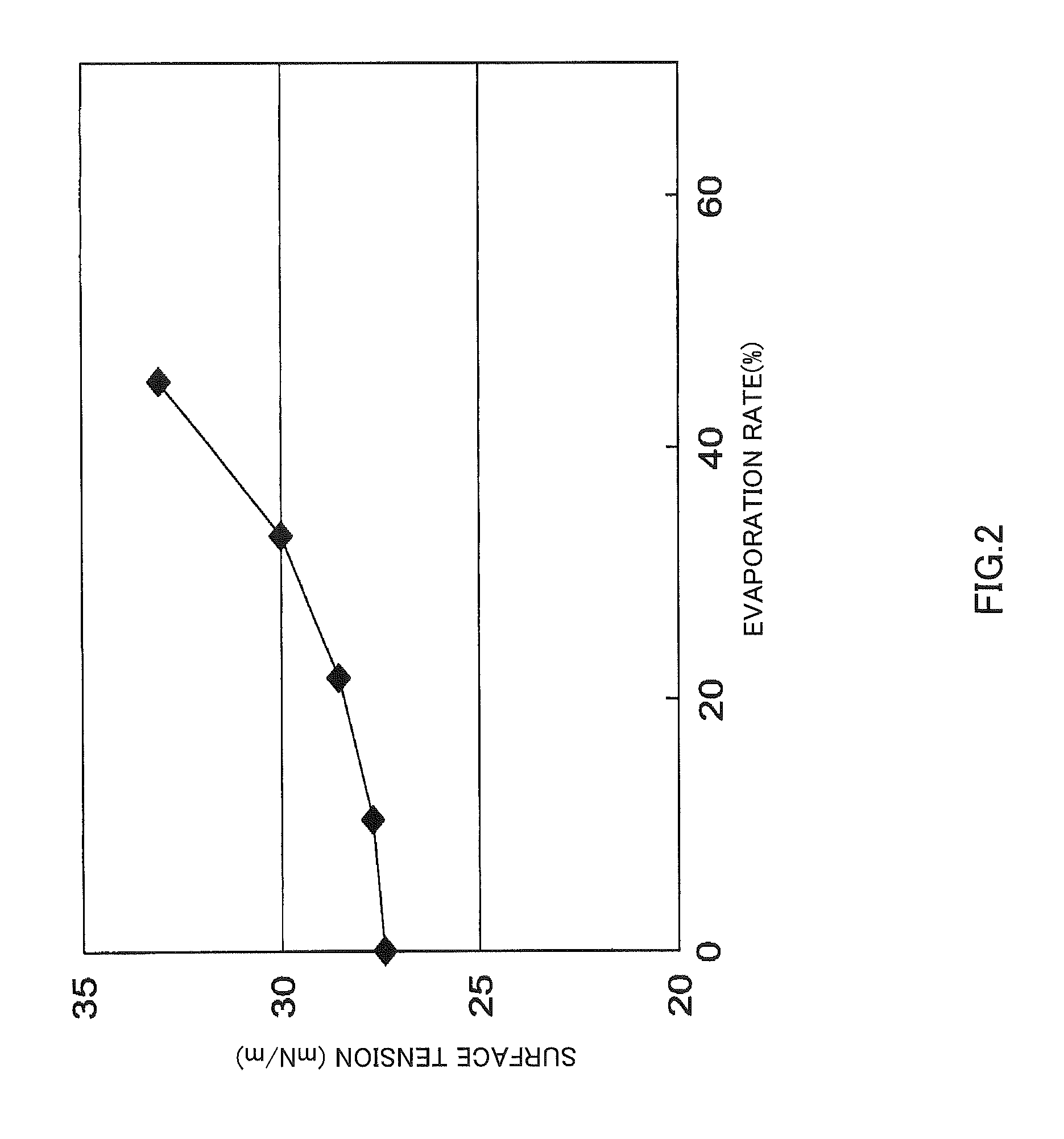Ink jet ink and ink jet recording method
a technology of ink jet printer and recording method, which is applied in the field of ink jet printer and ink jet recording method, can solve the problems of large amount of volatile organic compounds, odors and adverse safety effects on workers, and the requirement for ink jet printers to be equipped with expensive ultraviolet light sources, etc., and achieves excellent glossiness, low environmental load, and high fineness.
- Summary
- Abstract
- Description
- Claims
- Application Information
AI Technical Summary
Benefits of technology
Problems solved by technology
Method used
Image
Examples
example 1
Synthesis of Binder Resin
Synthesis of Binder Resin P-1
[0133]Into a flask equipped with a drop funnel, a nitrogen gas inlet tube, a reflux condensing tube, a thermometer, and a stirrer was placed 50 parts of methyl ethyl ketone, which was then heated to 75° C. with nitrogen bubbling. A mixture of a monomer composition (9.0 parts of methacrylic acid, 78 parts of methyl methacrylate, 6.5 parts of n-butyl acrylate, and 6.5 parts of 2-ethylhexyl acrylate), 50 parts of methyl ethyl ketone, and 0.5 parts of an initiator (AIBN: 2,2′-azobisisobutyronitrile) was dropwise added to the flask over 3 hr from the drop funnel. The mixture was then heated under reflux for a further 6 hr. After cooling, the methyl ethyl ketone was distilled off by heating under reduced pressure to yield a copolymer resin.
[0134]Separately, a solution of dimethylaminoethanol was prepared by dissolving dimethylaminoethanol in 450 parts of deionized water in an amount of 1.05 times molar equivalent to (meth)acrylic acids...
example 2
[0166]Cyan inks C21 to C40 were prepared as in preparation of inks in Example 1 except that Joncryl 537J (manufactured by BASF Japan, Inc., styrene-acrylic resin emulsion) was used instead of binder resin P-1 and that JDX: Joncryl JDX-6500 (manufactured by BASF Japan, Inc., acrylic resin) was used instead of binder resin P-2, in cyan inks C1 to C20, and the resulting inks were evaluated.
[0167]Cyan inks C21 to C30 according to the present invention satisfied requirements (a) to (c) and formed highly glossy images without uneven density and pin holes. In contrast, cyan inks C31 to C40 in Comparative Examples did not satisfy any one of requirements (a) to (c) and did not form high-quality images.
example 3
Preparation of Pigment Dispersion
Preparation of Yellow Pigment Dispersion
[0168]To 60 parts of deionized water were added 10 parts of EFKA-4585 (solid content: 50%, manufactured by BASF Japan, Inc.) serving as a pigment dispersing agent and 10 parts of 1,2-hexanediol. To this solution, 15 parts of Levascreen Yellow G01 (manufactured by Lanxess Deutschland GmbH) was added, followed by premixing. The premix was subjected to dispersion treatment with a sand grinder loaded with 50 vol % of 0.5 mm zirconium beads to yield a yellow pigment dispersion having a pigment solid content of 15%.
Preparation of Magenta Pigment Dispersion
[0169]A magenta pigment dispersion was prepared as in preparation of the cyan pigment dispersion in Example 1 except that Pigment Red 122 (manufactured by Dainichiseika Color & Chemicals Mfg. Co., Ltd., CFR-321) was used as a magenta pigment instead of C.I. Pigment Blue 15:3 as the cyan pigment.
Preparation of Black Pigment Dispersion
[0170]To 60 parts of deionized wa...
PUM
| Property | Measurement | Unit |
|---|---|---|
| surface tension | aaaaa | aaaaa |
| surface tension | aaaaa | aaaaa |
| surface tension | aaaaa | aaaaa |
Abstract
Description
Claims
Application Information
 Login to view more
Login to view more - R&D Engineer
- R&D Manager
- IP Professional
- Industry Leading Data Capabilities
- Powerful AI technology
- Patent DNA Extraction
Browse by: Latest US Patents, China's latest patents, Technical Efficacy Thesaurus, Application Domain, Technology Topic.
© 2024 PatSnap. All rights reserved.Legal|Privacy policy|Modern Slavery Act Transparency Statement|Sitemap



